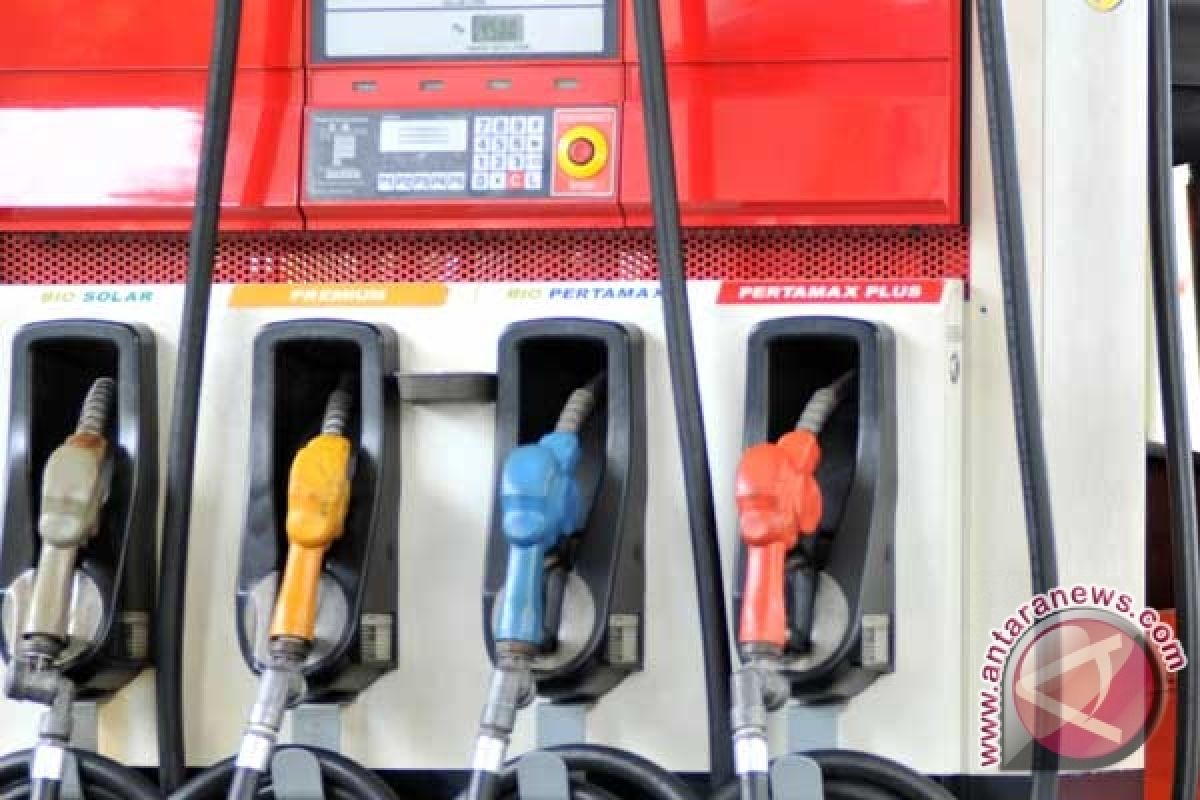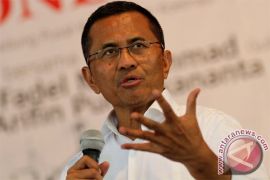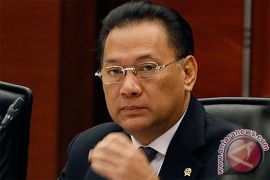To carry out the program the government has allocated Rp965 billion from the 2012 state budget and other sources. The funds will be used to build infrastructure to provide liquid gas for vehicles (LGV) and compressed natural gas (CNG).
Finance Minister Agus Martowardojo said on Monday (Jan 16) the government was considering to increase the amount of funds. "The Rp965 billion in funds is quite large for our needs. But we are prepared to increase it to ensure the success of the program."
He said the existing funds were enough to carry out the initial phase of the conversion program, including construction of infrastructures for LGV and CNG programs and fuel gas subsidy.
The extra funds for the program were likely to originate from bailout funds from state-owned companies and fiscal stimulus program using unspent budget funds, he said.
"We are preparing extra funds for more specific programs. The matter is still under discussion and will soon be decided," he said.
The government`s plan stems from its intention to reduce its fuel oil subsidy burden and is part of a program to replace fuel oil entirely with gas in the medium-term.
Under the program, the government expects the use of CNG for an estimated 44 thousand cars will reduce subsidized premium gasoline by 0.18 million kiloliters and the use of liquefied gas for 250 thousand public and private cars would reduce 0.23 million kiloliters of subsidized premium gasoline.
The program requires official cars, private cars and executive-class taxis to use non-subsidized fuel oils, while public transport cars, motorcycles and non-executive class taxis are allowed to use subsidized fuel oils.
But Energy and Mineral Resources Minister Jero Wacik was pessimistic that the 2012 subsidized fuel limitation program will achieve the target of lowering subsidized premium gasoline consumption by 6.21 million kiloliters.
"It will be good if we can achieve 50 percent of the target of lowering subsidized premium gasoline by 6.21 million kiloliters. But we will always try to achieve 100 percent of the target," he said at a working meeting with the House of Representatives (DPR)`s Commission VII on energy affairs on Monday (Jan 16).
The implementation of the program would face many obstacles so that the target would be difficult to achieve, he said.
The target included reduction of subsidized premium gasoline consumption by 5.8 million kiloliters for private four-wheel vehicles in Java and Bali starting April 1, 2012.
The plan to restrict the use of subsidized fuels has drawn mixed reactions from the parliament with House of Representatives (DPR) members at odds over the plan.
At a hearing with the Energy and Mineral Resources Ministry on Monday (Jan 16) the Democratic Party and the Golkar Party declared their support for the plan.
House Commission VII Chairman Teuku Riefky Harsya of the Democrat Party said the government and the DPR were obliged to carry out the 2012 budget law which required the government to implement the subsidized premium gasoline limitation program as of April 1, 2012.
Astir Dainy Tara of the Golkar Party supported the plan. He asked the government to strengthen the supervision of converter kits it planned to sell to allow cars to run on gas-based fuels.
However, the plan came under fire from the PDI-P faction at the DPR. Effendi Simbolon of the faction said the plan, if realized, would add to private car owners` burden as they would have to buy non-subsidized fuels which were cost twice as much as the price of subsidized fuels.
Secretary of the PDIP faction in the DPR Bambang Wuryanto feared the policy would only benefit foreign oil companies and conversion kit importers at the expense of private car owners and state oil and gas company Pertamina.
If subsidized premium gasoline consumption was limited and the public switched to non-subsidized pertamax gasoline, Pertamina must compete with foreign oil companies which sold pertamax at lower price, he said in Semarang on Monday (Jan 16).
He said Pertamina`s refineries currently produced 600-650 thousand barrels of premium per day. "If premium consumption is limited how will be the fate of the refineries which cannot be converted to produce pertamax," he said.
He said the PDIP faction was firmly opposed to the policy on the ground it would harm the general public.
Instead of limiting the use of premium, the government would better raise its price by Rp1,000 a litter, he said.
Opposition to the plan was also echoed by the Islamic organization Hizbut Tahrir Indonesia (HTI) with thousands of its members taking to the streets in Kendari, capital of South Sulawesi province, to protest what they termed "liberalization of oil and gas sector".
In the long run, the limitation of subsidized fuel consumption would extremely benefit foreign-owned gasoline stations in the country such as Total, Shell and Petronas, the rally`s coordinator, Saenuddin, said in his oration.
The foreign-owned gasoline stations would slowly but surely control the sales of fuel oils in Indonesia due to the policy, he said.
"If that is the case, it will be foreign nations and not the Indonesian people who will benefit from the limitation of subsidized fuel consumption," he said.
Therefore, he added HTI called on the entire Indonesian nation particularly the poor to reject the policy which he said would harm the small-income people.
Nugroho SBM, an economist with Diponegoro University (Undip) in Semarang, said on Monday raising the present gasoline price would be a more realistic policy than the government`s plan to limit subsidized fuel oil consumption to reduce its subsidy burden.
"It will be very difficult to control the fuel oil market if there is a wide price disparity between two categories of oil (subsidized and non-subsidized gasoline). The condition could lead people to seek profit illegally," he said.
Nugroho said if the price of subsidized premium gasoline was maintained at the current price of R4,500 per liter for public transport and motorcycles while private cars are only allowed to buy non-subsidized gasoline at a far higher price it would provide an opportunity for speculators to take benefit illegally out of the price disparity.
The House Commission VII is expected to decide this week its stand on the plan to limit subsidized fuel oil consumption.
Commission VII Chairman Teuku Riefky Harsya after a working meeting on the limitation of subsidized fuel oil consumption with Minister Jero Wacik on Monday (Jan 16) said his commission would listen to the government`s readiness to carry out the plan.
The meeting would not make any conclusion and the House Commission would only listen to the government regarding its plan, he said.
He said a number of outside parties would be invited to attend the meeting, including the Oil and Gas Down Stream Regulating Agency (BPH Migas), PT Pertamina, Hiswana Migas, the Indonesian Chamber of Commerce and Industry (Kadin), Gaikindo, Apindo, small scale enterprises associations, PT Petronas Niaga, PT AKR and PT Surya Parna Niaga.
(T.S012/HAJM/S012)
Reporter: by Suharto
Editor: Priyambodo RH
Copyright © ANTARA 2012











